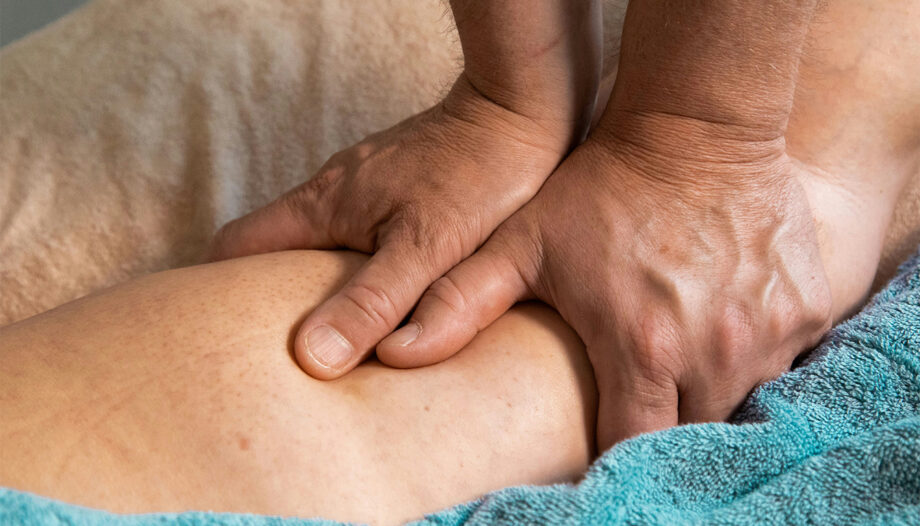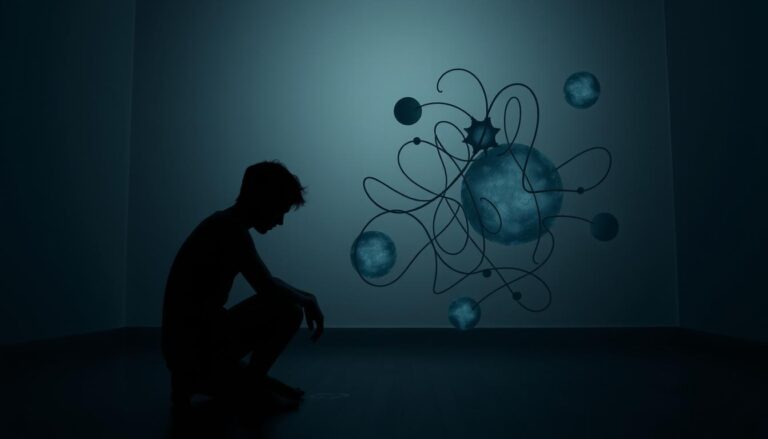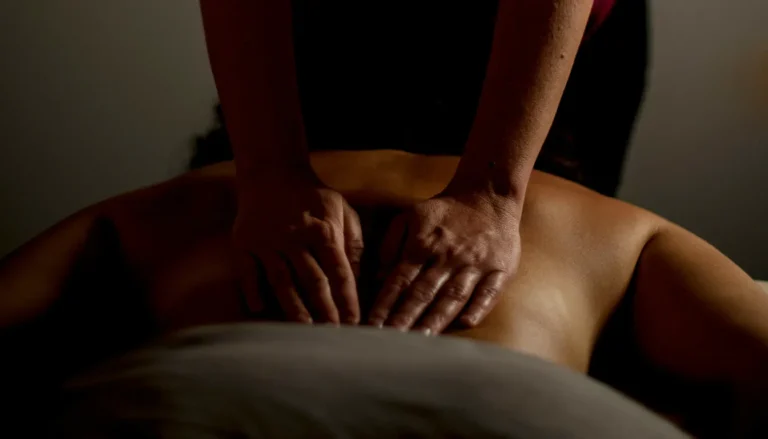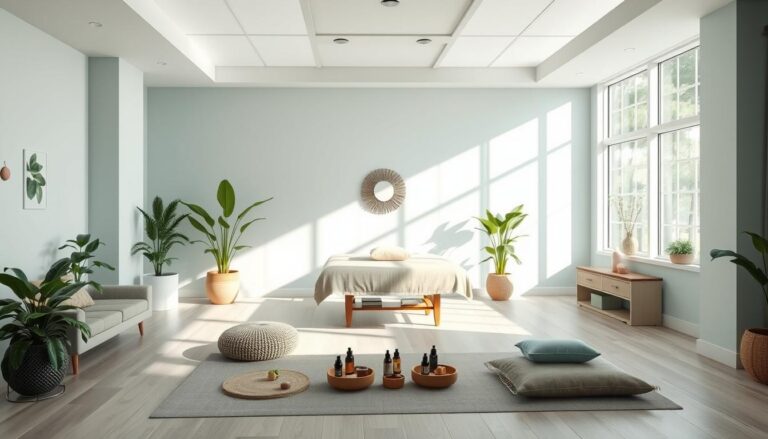Erectile dysfunction affects around one in five men in the UK, making it a common concern for many. While medications like Viagra are widely known, some individuals seek alternative or complementary approaches. Among these, massage therapy has gained attention as a potential way to support sexual health.
Historically, prostatic massage was used in the 19th century to address related conditions. Today, it remains a topic of interest for those looking for non-invasive options. This article examines the evidence behind such techniques, their benefits, and important safety considerations.
Key Takeaways
- Erectile dysfunction impacts a significant portion of men in the UK.
- Massage therapy is considered a complementary approach alongside conventional treatments.
- Prostatic massage has historical roots in managing related conditions.
- Non-invasive therapies are increasingly sought after for sexual health support.
- Safety and evidence-based practices should guide any therapeutic choice.
Understanding Erectile Dysfunction and Its Causes
Struggles with maintaining an erection can stem from both physical and emotional factors. While often misunderstood, these challenges frequently trace back to circulatory health or mental well-being. Recognising the root causes is the first step toward effective management.
Common Physical and Psychological Factors
Half of cases in men over 50 involve vascular issues like atherosclerosis, where narrowed blood vessels restrict circulation. Chronic conditions—diabetes, heart disease, and obesity—also play a role by damaging nerves and arteries.
On the psychological side, stress and anxiety contribute to 40% of instances, according to the British Journal of Urology. Performance pressure and depression can disrupt the brain’s signals, compounding physical limitations.
How Blood Flow Affects Erections
Healthy erections rely on nitric oxide, a compound that relaxes penile blood vessels to allow increased blood flow. Smoking, high blood pressure, and sedentary habits impair this process, reducing oxygen supply to tissues.
*Chronic stress* elevates cortisol levels, further constricting arteries. As one specialist notes,
“The body’s stress response directly opposes the relaxation needed for sexual function.”
- Key physical causes: Atherosclerosis, diabetes, hypertension.
- Psychological triggers: Anxiety, depression, relationship stress.
- Lifestyle links: Smoking, poor diet, lack of exercise.
How Massage Treatment for Erectile Dysfunction Works
Recent interest in holistic methods has spotlighted techniques that enhance circulation and relaxation. These approaches aim to address underlying factors like restricted blood flow or stress, offering a complementary path to conventional options.
The Role of Blood Circulation and Relaxation
Perineal massage, for instance, may increase pelvic blood flow by 20–30%, as noted by UPGUYS. Improved circulation supports tissue health and responsiveness. Similarly, Swedish techniques reduce cortisol levels by 25–30%, countering stress-related barriers.
Scientific Insights from Recent Studies
A 2021 trial found reflexology improved erectile function in 68% of participants. Acupressure also shows promise by stimulating nitric oxide release, which dilates blood vessels. These findings align with NHS advice to combine therapies with lifestyle adjustments.
| Therapy Type | Key Benefit | Supporting Evidence |
|---|---|---|
| Perineal Massage | Boosts pelvic circulation | UPGUYS clinical observations |
| Reflexology | Enhances nerve signalling | 2021 study (68% efficacy) |
| Acupressure | Promotes vascular dilation | Nitric oxide research |
While research continues, these methods highlight the body’s capacity to respond to targeted touch. Always consult a specialist to tailor approaches safely.
Benefits of Massage Therapy for Sexual Health
Exploring holistic approaches to sexual wellness reveals multiple pathways to improved wellbeing. Techniques targeting stress reduction and pelvic muscle function offer tangible benefits, backed by clinical observations and patient experiences.
Reducing Stress and Anxiety
A Philippine study found 58% of participants reported fewer symptoms after a 4-week regimen. Acupressure users noted 45% lower anxiety scores, highlighting the mind-body connection.
Key advantages include:
- Dual action: Eases muscle tension while calming the nervous system.
- UPGUYS data shows abdominal techniques enhance blood flow to pelvic regions.
- Patients often report heightened confidence and relationship satisfaction.
Improving Pelvic Muscle Function
Targeted methods strengthen the bulbocavernosus muscles, crucial for firmness. The British Association of Urological Surgeons recognises these approaches as viable adjuncts to mainstream care.
| Technique | Primary Benefit | Evidence |
|---|---|---|
| Perineal Stimulation | Muscle endurance | Philippine study (58% efficacy) |
| Reflexology | Relaxation response | 45% lower anxiety scores |
| Swedish Methods | Cortisol reduction | UPGUYS circulation data |
Integrating these practices requires professional guidance but underscores the body’s capacity for self-repair. As one therapist noted,
“Small, consistent efforts often yield the most sustainable results.”
Types of Massage for Erectile Dysfunction
Several manual techniques show promise in supporting men’s sexual health. Each method targets specific concerns, from circulation to stress relief. Understanding their differences helps tailor a safe, effective approach.
Prostatic Massage: Techniques and Precautions
This specialised therapy requires medical training to perform safely. The NHS cautions against DIY attempts due to risks like infections or injury. Always consult a urologist before considering this option.
- Avoid self-administration: Incorrect pressure may harm delicate tissues.
- Medical supervision: Professionals use sterile tools and precise movements.
- Contraindications: Skip if you have haemorrhoids or take anticoagulants.
Acupressure for Enhanced Sexual Function
Stimulating specific pressure points may improve blood vessel dilation. Research highlights three key areas:
- HT7 (wrist): Apply firm pressure for 30 seconds to reduce anxiety.
- LV3 (foot): Linked to pelvic circulation; press gently during exhalation.
- KD3 (ankle): Supports kidney meridian function, tied to vitality.
Reflexology and Lower Body Focus
This therapy maps foot zones to reproductive organs. The heel and arch correspond to the prostate and testes. A 2020 study noted improved symptoms in 58% of participants after regular sessions.
| Technique | Primary Benefit | Duration |
|---|---|---|
| Swedish Massage | General relaxation | 45–60 mins |
| Deep Tissue | Pelvic muscle release | 30 mins (targeted) |
“Reflexology’s holistic approach addresses both physical and emotional barriers.”
Step-by-Step Guide to DIY Massage Techniques
Simple manual techniques may enhance *relaxation* and vascular function when practised correctly. These home methods focus on gentle pressure to improve blood flow and pelvic comfort. Always stop if discomfort arises and consult your GP.
Perineal Massage: A How-To
This method targets the area between the scrotum and anus. UPGUYS suggests circular motions to encourage blood flow. Follow these steps:
- Warm-up: Apply a warm towel for 2–3 minutes to relax muscles.
- Lubricate: Use British-made oils like Naturaful to reduce friction.
- Technique: Use two fingers for slow, clockwise circles for 5 minutes, 3x weekly.
Abdominal and Lower Back Stimulation
Kneading below the navel may boost pelvic circulation. Pair with deep breathing for enhanced relaxation:
| Area | Method | Duration |
|---|---|---|
| Abdomen | Clockwise kneading | 3–5 mins |
| Lower Back | Firm upward strokes | 2 mins |
“Discontinue immediately if pain occurs—consistent, gentle pressure yields the best results.”
When to Consider Professional Massage Therapy
Qualified practitioners offer tailored approaches that address individual needs safely. While DIY methods have merit, complex cases or pre-existing conditions often warrant expert intervention. In the UK, therapists handling prostate work must hold Level 5 Clinical Massage certification—a benchmark for quality and safety.
Finding a Qualified Therapist in the UK
The Complementary & Natural Healthcare Council (CNHC) accredits reputable professionals. Always verify credentials before booking. Key considerations include:
- Specialisation: Seek therapists trained in male pelvic function or urological health.
- Consultation: A pre-session review of medical history ensures suitability for patients.
- Environment: Clinical settings differ from spas—sterile equipment and private rooms are standard.
What to Expect During a Session
Sessions typically last 30–45 minutes, focusing on targeted areas like the perineum or lower back. The London Andrology Centre reports a 72% satisfaction rate in integrated programmes combining manual treatment with medical advice.
| Setting | Features | Cost Range |
|---|---|---|
| Clinic | Doctor-supervised, diagnostic tools | £90–£120 |
| Spa | Relaxation-focused, fewer assessments | £60–£80 |
“Always choose a CNHC-registered massage therapist—their training meets rigorous NHS-adjacent standards.”
Note that these services aren’t NHS-covered, but some private insurers may contribute. Discuss options with your doctor to align with broader treatment plans.
Safety and Precautions for Massage Treatment
Prioritising safety ensures any therapeutic approach remains beneficial rather than harmful. While techniques may support wellbeing, certain conditions require caution or outright avoidance. Always consult your doctor if unsure about suitability.
Conditions That May Require Medical Advice
Research identifies scenarios where manual methods risk complications:
- Prostate cancer or active infections: Pressure may spread malignant cells or bacteria.
- Severe haemorrhoids or blood thinners: Increased bruising or bleeding likelihood.
- Penile implants or priapism history: Mechanical damage concerns.
Avoiding Common Mistakes
Overenthusiasm can backfire. The British Urology Foundation warns against:
- Excessive perineal pressure, which may damage nerves.
- Ignoring red flags like painful ejaculation or blood in semen—seek immediate GP assessment.
- Rushing progression: Start gently, increasing intensity gradually over weeks.
“High-risk patients benefit most when therapists coordinate with NHS urology teams.”
Stress-related anxiety about performance can also distort self-assessment. If symptoms persist despite treatment, revisit your healthcare provider for adjusted strategies.
Integrating Massage with Lifestyle Changes
Nutrition and movement play pivotal roles in supporting vascular health. A Mediterranean lifestyle, rich in olive oil and leafy greens, improves endothelial function by 18% according to UPGUYS data. This complements manual techniques by addressing root causes.
Diet and Exercise Essentials
Zinc-rich foods like British oysters and pumpkin seeds aid testosterone production. Pair these with:
- Pelvic floor exercises: 10-second Kegel holds, repeated thrice daily
- 150 minutes weekly of brisk walking—meets British Heart Foundation guidelines
- NHS Smokefree programmes to enhance blood flow within 8 weeks
Cardio activities boost nitric oxide levels better than isolated stretching. As one nutritionist notes:
“Foods high in flavonoids work synergistically with movement to reduce oxidative stress.”
Combining with Other Treatments
Clinical medicine and manual therapies can coexist safely. Key considerations include:
| Combination | Benefit | Precaution |
|---|---|---|
| PDE5 inhibitors + massage | 20% greater efficacy | Monitor blood pressure |
| Psychotherapy + acupressure | Addresses mental blocks | Coordinate session timing |
This integrated approach respects the body’s interconnected systems. Always consult your GP before modifying any treatment plan.
Conclusion
Exploring complementary approaches to men’s health can open new pathways to wellbeing. With over 3,000 certified practitioners in the UK, manual therapies are gaining recognition as supportive options.
Discussing these methods with your GP ensures safe integration into existing care plans. British medical communities increasingly acknowledge their benefits, especially when combined with lifestyle adjustments.
Patience is key—most users report noticeable improvements after 6–8 weeks. For reliable guidance, consult NHS resources or CNHC-registered specialists.
Remember, small consistent steps often lead to lasting results. Prioritise professional advice to tailor the right way forward for your needs.
FAQ
Can massage therapy help with erectile dysfunction?
Yes, certain techniques may improve blood flow and reduce stress, which can support sexual function. Research suggests that relaxation and circulation play a key role.
What types of massage are best for improving sexual health?
Prostatic massage, acupressure, and reflexology are often recommended. Each method targets different areas to enhance circulation and muscle function.
Are there DIY techniques I can try at home?
Yes, perineal and lower back stimulation can be effective. However, proper technique is crucial to avoid injury. Consulting a therapist first is advisable.
When should I see a professional instead of self-treating?
If you have underlying health conditions or experience pain, seek a qualified therapist. Professionals ensure safety and proper application.
How does stress impact erectile function?
High stress and anxiety can restrict blood vessels, making erections difficult. Relaxation therapies, including massage, may help counteract this effect.
Can lifestyle changes enhance the benefits of massage?
Absolutely. A balanced diet, regular exercise, and stress management work well alongside therapy for better results.
Are there risks associated with prostatic massage?
If done incorrectly, it may cause discomfort or worsen symptoms. Always consult a doctor before attempting advanced techniques.
How often should massage therapy be done for best results?
Frequency depends on individual needs, but consistency is key. A therapist can recommend a tailored schedule.





